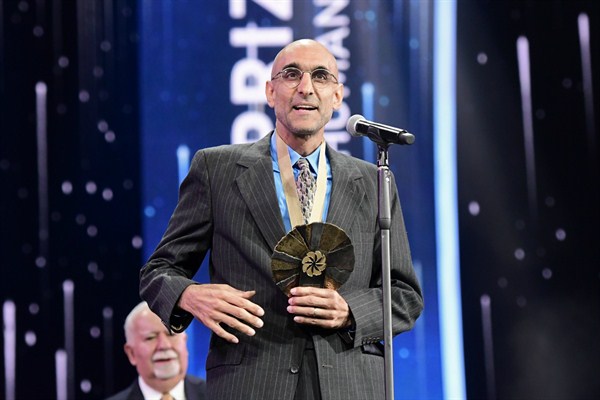On Jan. 13, 2017, as his term was winding down, former U.S. President Barack Obama issued an executive order announcing plans to revoke longtime sanctions imposed on Sudan. The order also called for a sanctions review by next month that would determine whether the government of Sudan’s president, Omar al-Bashir, had continued with what the order described as “positive actions,” including maintaining a cease-fire in conflict areas, improving access to humanitarian aid and cooperating with the U.S. to address regional conflicts and terrorism threats.
As Sudan awaits the sanctions review, this week marked the six-year anniversary of the conflict in the country’s Nuba Mountains region pitting the government against the Sudan People’s Liberation Movement-North, an offshoot of the movement that fought for South Sudan’s independence. In an interview with Bloomberg last month, Yassir Arman, the SPLM-North’s secretary-general, said the sanctions review should be postponed and accused Khartoum of violating the cease-fire and blocking humanitarian aid.
Dr. Tom Catena, an American, is the only surgeon permanently stationed in the Nuba Mountains region, where he operates the area’s only full-scale referral hospital. He was recently in Yerevan, Armenia, to receive the Aurora Prize, a humanitarian award of $1.1 million. While there, he spoke with WPR about the humanitarian situation in Nuba as well as the consequences of Khartoum’s improved relationships with Western powers.

